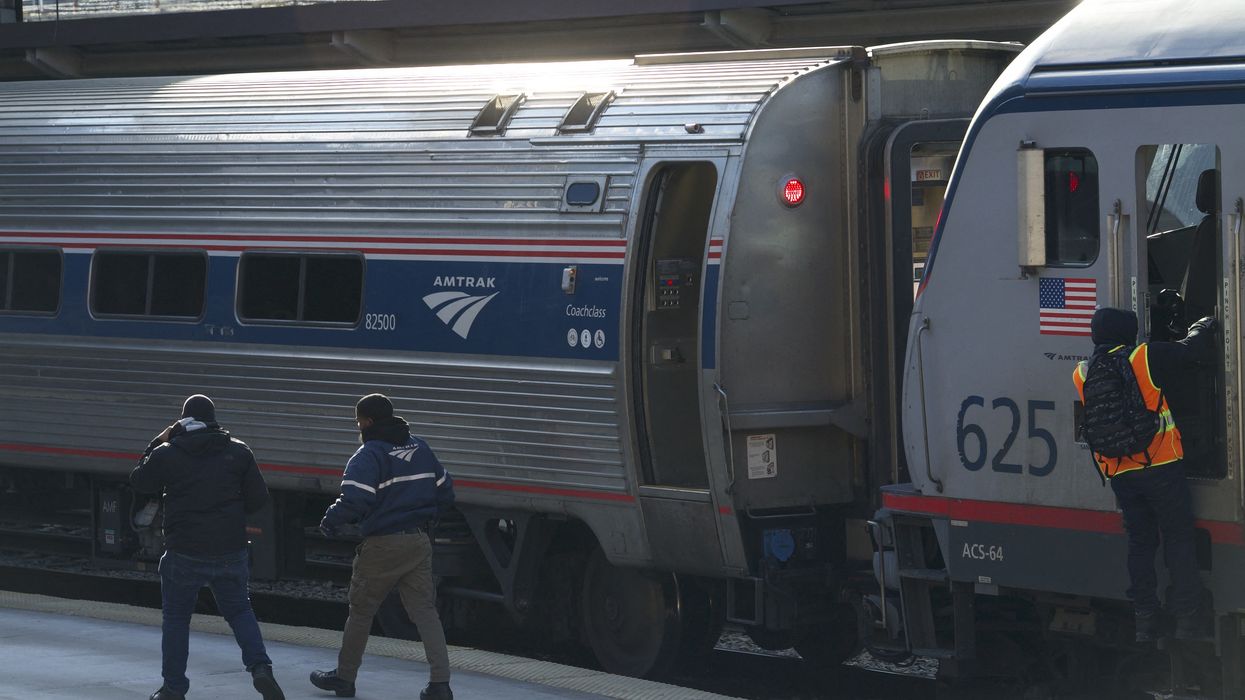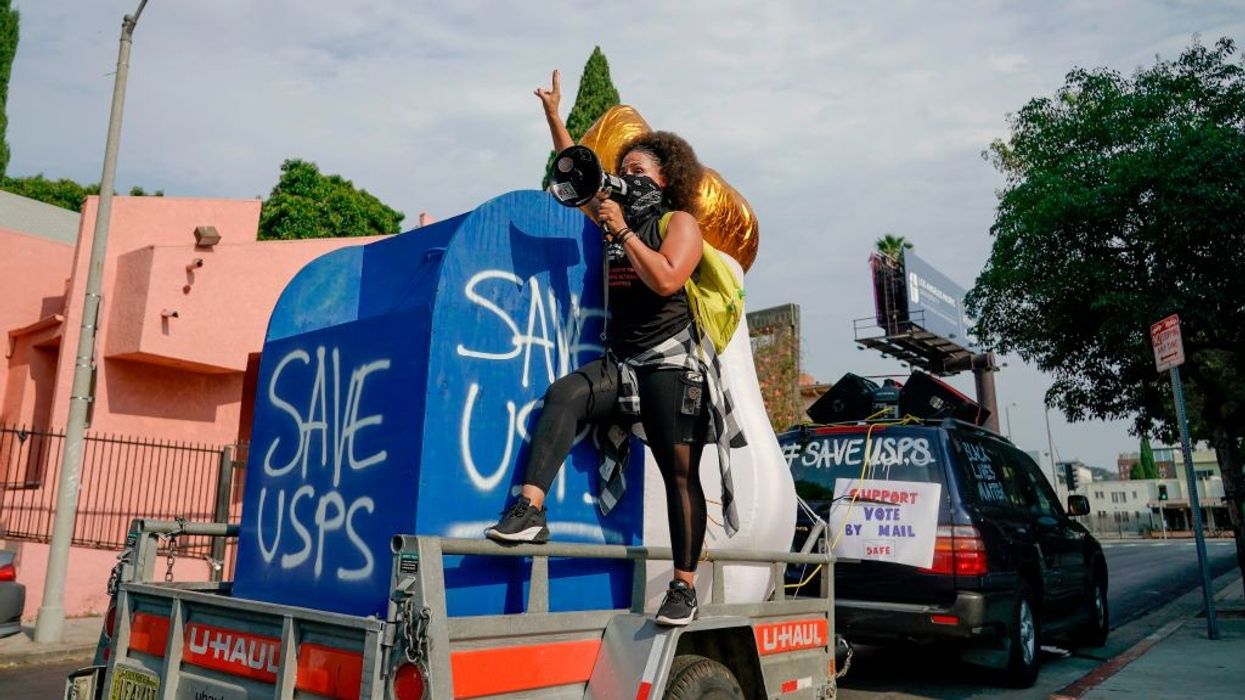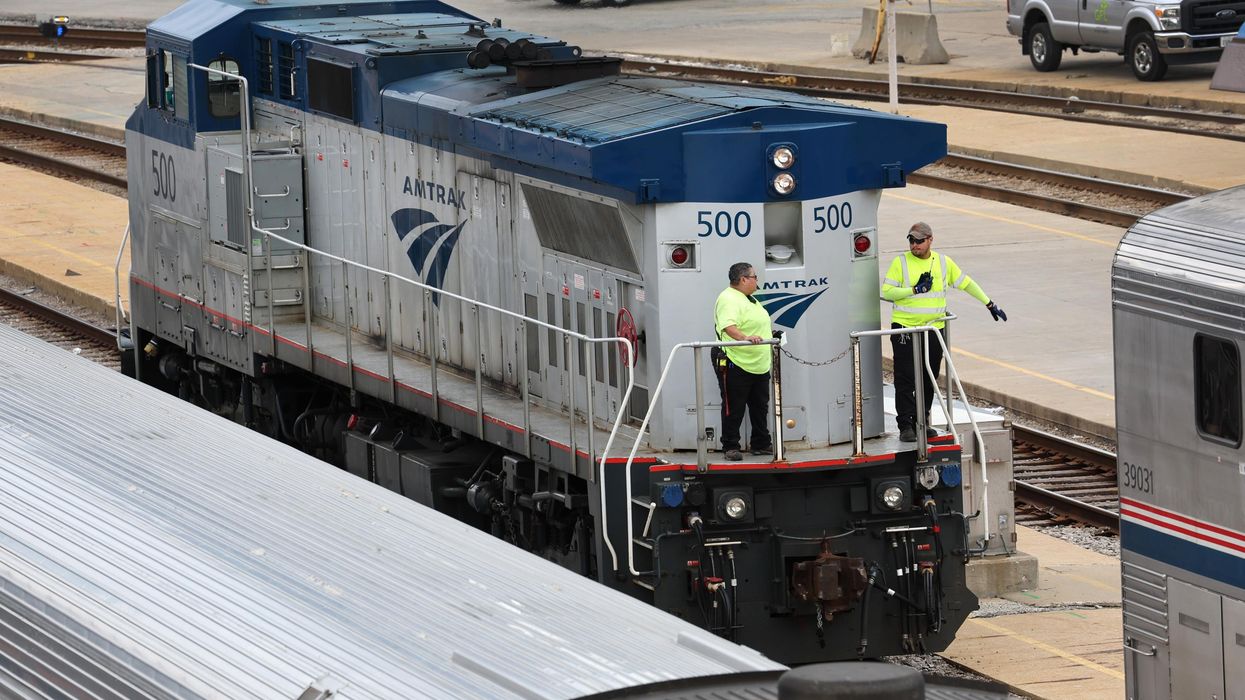Privatizing Amtrak Would Be a Disaster for Working People
Privatization of public institutions has an observable record of raising prices for customers, diminishing service quality, and degrading working conditions.
At a Senate Commerce subcommittee hearing earlier this month, former car salesman, wage thief, and current Ohio Sen. Bernie Moreno said the U.S. government should stop funding Amtrak, and argued in favor of handing it over to the private sector. Moreno and his ilk—including former White House dog, Elon Musk—perpetuate an old and tired right-wing tradition that is at best confused and at worst conniving: bashing all that serves the public good and venerating all that transfers wealth to private moneyed interests.
One might be tempted to give Moreno, Musk, and other practitioners of the ancient religion of market worship the benefit of the doubt; perhaps they really believe what they say. Maybe they truly think concentrating wealth and institutional control in the hands of a few corporate masters is what’s best for everyone. If that is the case, they are both far too bewildered, their minds far too infantile, to be in any positions of power and influence.
On the other hand, if Moreno and Musk are not in fact confused, then they must be aware that what they say is completely false. Privatization of public institutions has an observable record of raising prices for customers, diminishing service quality, and degrading working conditions. They know privatization is not good for the public, but it is good for private moneyed interests, like Moreno’s wealthy campaign contributors and billionaires like Musk, and that is what matters most to them.
It is clear that if we want a passenger rail system that consistently, effectively, and conveniently serves the public, the last thing we should do is privatize Amtrak.
For all the talk about Amtrak’s inefficiency, the record tells a different tale. Even with inadequate federal funding, Amtrak has made significant accomplishments. For example, though rail travel decreased during the Covid-19 pandemic, Amtrak set all-time records for ridership and revenue in FY24. In fact, Amtrak’s Northeast Corridor (NEC) ridership was 12% higher in FY24 than it was in FY19, before the pandemic struck, and the NEC’s FY24 operating cost recovery, at 123%, far exceeded the 100% statutory goal.
Speaking of efficiency—just how “efficient” is the private sector, anyway? Hack economists tell us that efficiency means getting the same or better results at a lower cost. A corporation gutting their workforce and skimping on maintenance to obtain higher profits is, by this logic, acting efficiently. The efficiency of a private business, therefore, depends on how much profit it can squeeze out of fewer workers, with cheaper materials, in worse conditions, and at greater risk to surrounding communities.
By laying off workers, cutting costs, neglecting maintenance, lengthening trains, and eschewing capacity expansion, the Class I railroads, with their Precision Scheduled Railroading (PSR) business model, must be sublimely efficient. After all, with after-tax profits in the billions, railroad corporations like Norfolk Southern, BNSF, and CSX must be doing something right. Just ask the folks in East Palestine, Ohio, how marvelously efficient Norfolk Southern is.
And there’s the rub. When priests of private enterprise like Moreno and Musk say public services should be privatized because the private sector is more efficient, they mean private entities deliver higher profits to their owners, not that they better serve the needs of the public. In fact, even when services and institutions are privatized, the public still pays for them in numerous ways—with lower wages and worse jobs, decreased or eliminated benefits, displacement, money siphoned away from communities into private pockets, and so on.
For example, a 2009 study showed that, following privatization and outsourcing, food service workers’ wages in New Jersey K-12 schools were cut by $4-6, and many workers completely lost their health insurance benefits. In 2011, privatization of nursing assistant jobs at a home for veterans in Michigan saw the starting wage lowered to $8.50 an hour with no health insurance or pension benefits. Public nursing assistants, on the other hand, received $15-20 an hour, health insurance, and pensions.
In regards to rail, one can simply look across the Atlantic to see the results of rail privatization. Margaret Thatcher, high priestess in the cult of the market, privatized various public services, including some connected to the rail system. Her successor, John Major, started the process of privatizing the British rail system in 1993-4, and by 1997 the U.K.’s national rail system was under corporate control.
If anything, we should be asking ourselves why so many critical industries, like the Class I freight railroads, remain in private hands when our needs would be better served if these industries were publicly owned and operated.
The privatization of British rail was disastrous. Higher fares, deteriorated service, rampant underbidding by franchisees who then abandoned agreements, and neglected infrastructure that cost people their lives. In the first three years after privatization, 38 people died in rail accidents, and in October 2000, four people died in a derailment that was entirely preventable. The private owners, Railtrack, knew about the cracked rail that caused the derailment, but refused to fix it. These people were sacrifices made at the altar of profit. Talk about “efficiency.”
Recognizing that these devastating events were caused largely by the egregious negligence of private owners, Britain renationalized its rail infrastructure in 2002. A 2012 GfK NOP poll revealed that 70% of the 1,000 Britons surveyed were in favor of returning the rail system to public ownership. In October 2022, YouGov reported that a majority of British voters, including Conservatives, believe that utilities such as rail, water, and energy should be in the public sector.
After decades of failure under the experiment of privatization, the U.K.’s Labour government is currently taking steps to renationalize the British rail system. In the United States, we should understand what happened across the pond as a case study for what not to do. Privatization, in terms of its service to the public, was a complete flop. There is no reason to believe the privatization of Amtrak would be less of a flop.
It is worth noting that while Elon Musk was castigating Amtrak at a tech conference earlier this year, he compared Amtrak unfavorably to China’s exceptional high-speed passenger trains. In calling for privatization of “anything that can be privatized” while at the same time praising a state-owned rail system (he even called China’s trains “epic”), Musk showed the disingenuousness, or incoherence, of the market religion he shares with Moreno and many other delirious practitioners.
With all this in mind, it is clear that if we want a passenger rail system that consistently, effectively, and conveniently serves the public, the last thing we should do is privatize Amtrak. With increased (and long overdue) federal funding, Amtrak can invest in infrastructure and equipment upgrades and repairs, create thousands of well-paying union jobs across the country, and better serve passengers.
If anything, we should be asking ourselves why so many critical industries, like the Class I freight railroads, remain in private hands when our needs would be better served if these industries were publicly owned and operated. Why not democratize these enterprises? Wouldn’t you like a say?


